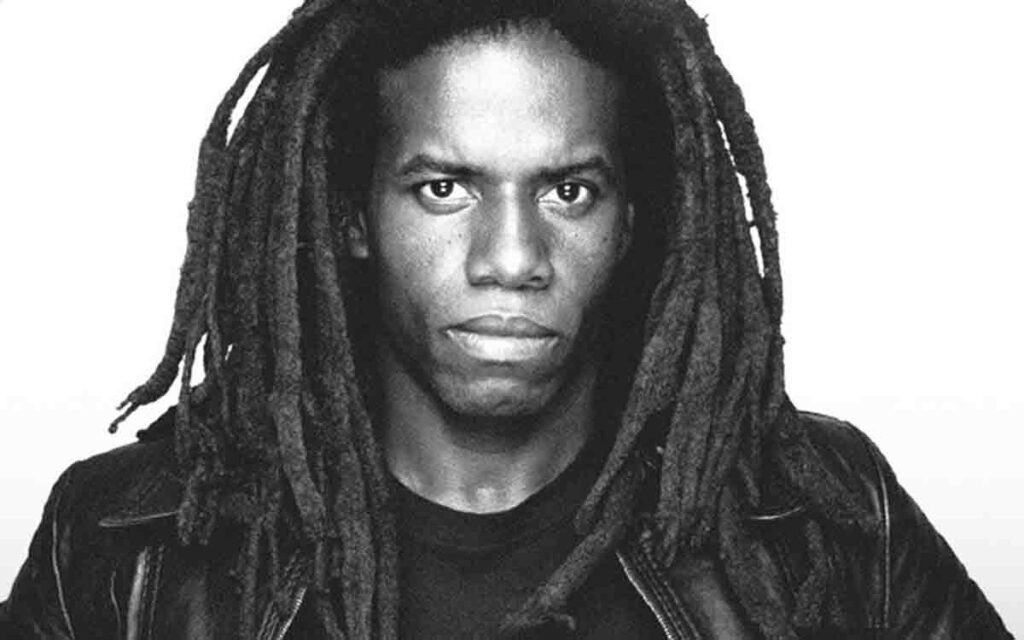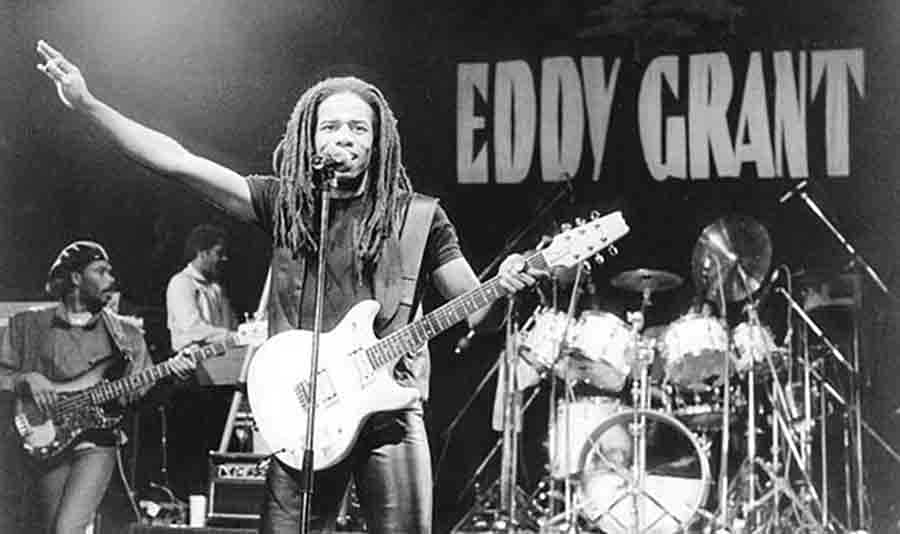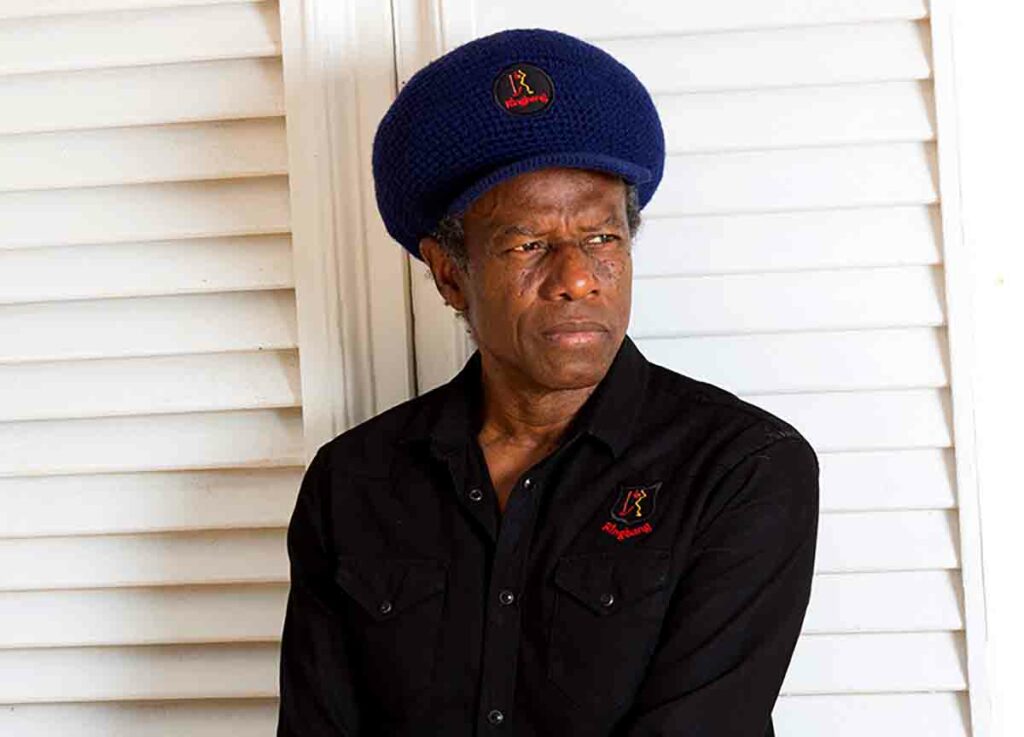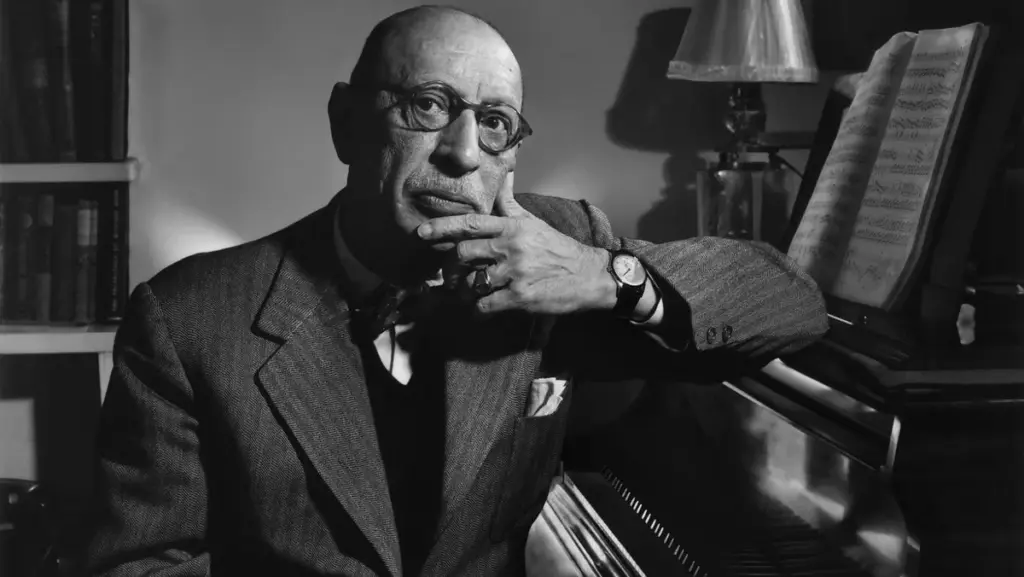The love of music often shapes the environment. This is a hobby. The presence of innate talent has no less influence. Eddy Grant, the famous reggae musician, has just such a case. From childhood, he grew up on a love of rhythmic motives, developed all his life in this area, and also helped other musicians to do it.
Childhood years of the future musician Eddy Grant
Edmond Montague Grant, later known as Eddy Grant, was born on March 5, 1948. It happened in the city of Pleasance, a small country in the north of South America, Guyana. At that time it was an English colony.
When the boy was 2 years old, the family moved to London. Despite the fact that they could not boast of a rich life, they lived in the working-class quarter of the capital. This was a good chance to develop Eddy's passion for music. Since childhood, he was in love with hot Caribbean motives, constantly singing, playing and inventing songs. Basically, like his two brothers, who also became musicians.

The first creative achievements of Eddy Grant
Already at the age of 17, Grant, together with like-minded school friends, assembled a group that was called The Equals. He played guitar, as did Lincoln Gordon, Patrick Lloyd. John Hall owned the drums and Derv Gordon sang the vocals.
The attention was attracted by the international composition, which had never been noticed in the music world before. The guys performed in clubs and at parties. They often opened concerts of recognized celebrities, warming up the audience. In 1967, representatives of President Records drew attention to the band.
The band was asked to release a trial single. The composition "I Won't Be There" did not gain mass popularity, but was actively promoted on radio stations. A couple more songs followed. "Baby, Come Back" was a success in Germany and the Netherlands. After that, the group quickly began to gain popularity. The guys attracted with their bright appearance, energetic songs.
Related activities
Eddy Grant was not only an active member of the Equals, but also wrote songs for the group. He was assisted by Pat Lloyd and the Gordon brothers. In parallel, Grant, at the insistence of the managers of the record company, worked with the group PYRAMIDS. He wrote songs for the group, and also acted as a producer of their early works.
Sudden career obstacles
In 1969, while touring in Germany, members of the Equals were in a car accident. Grant received severe injuries, refused to perform as part of the team. The musician did not immediately leave the group, he continued to write songs for them. Eddy quickly decided to retrain as a manager.
In 1970 he opens his own studio Torpedo. The musician attracts young performers working in the reggae style to cooperate. At the same time, Grant keeps in touch with Equals. The single "Black Skinned Blue Eyed Boys", written by Eddy, in 1970 returned the band's shattered popularity.
Trouble came suddenly again. In early 1971, the musician showed serious health problems. A recent accident made itself felt. He promptly sold his studio, finally terminated his relationship with Equals. The group quickly went out of business after that.

Resumption of work
Having improved his health a little, Grant returned to the musical sphere again. In 1972 he opened a new recording studio. At first, The Coach House and the Ice label were intended to work with other musicians. Eddy hesitated for a long time to resume his own activities. Only by the end of the 70s did he begin to develop his own solo career.
A series of singles immediately took the British charts. In 1982, the composition "I Don't Wanna Dance" took first place. In the same year, Equals members decided to resume their work. The guys officially registered their rights, and Grant became the owner of the authorship.
Eddy did not return to the group, did not write songs for her anymore. The band specialized more in touring and never regained the level of success they had with Eddy Grant.
Solo success
Returning to the stage, the musician replaced the former reggae, ska, calypso, soul, which were traced in his work, for something more gloomy. Later this style was defined under the name "soca". In 1977, when Eddy began his solo career, the public did not appreciate his work, but in 1979 everything changed. Grant composed, recorded and produced his own creations.
Emigration, the further musical fate of Eddy Grant
In 1984, noticing the cooling of the public to his work, Eddy decided to move to Barbados. At the new location, he opened another recording studio. Here he mainly supported local talent. At the same time, he took up journalism. Grant published literature on calypso musicians. Eddy has not abandoned his own creativity. In most cases, these were experiments with styles.

Thus, he searched for himself, which eventually resulted in the emergence of a new direction, which he himself called “ringbang”. In the 90s, Grant released several new albums that were not a resounding success. He devoted more time to producing work, willingly performing at various festivals. In 2008, Eddy Grant went on tour for the first time in 25 years.



